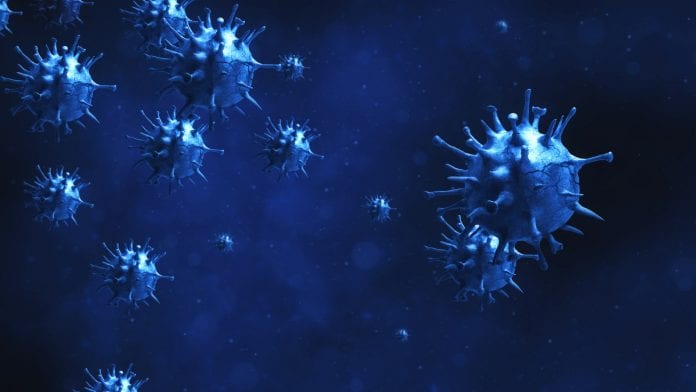
Scientists have linked fatal reactions to COVID-19 in young people to rare gene variants and autoimmunity.
New research has shown that 10% of the young and healthy people that develop severe COVID-19 had misguided antibodies which attack the immune system itself rather than the virus. Another 3.5%, at least, of those who had fatal reactions carried a specific kind of genetic mutation.
Patients with autoimmunity and the gene mutation lack type I interferon, a set of 17 proteins crucial for protecting cells and the body from viruses. These proteins seem to be ‘missing-in-action’ in these patients due to being neutralised by auto-antibodies, or due to not being produced in sufficient amounts in the first place due to a faulty gene.
The findings are the first results being published out of the COVID Human Genetic Effort, an ongoing international project spanning over 50 sequencing hubs and hundreds of hospitals around the world, co-led by Jean-Laurent Casanova, head of the St. Giles Laboratory of Human Genetics of Infectious Diseases at The Rockefeller University and a Howard Hughes Medical Institute investigator, and Helen Su of the National Institute of Allergy and Infectious Diseases. The study participants included various nationalities from Asia, Europe, Latin America, and the Middle East.
The findings have been published in the journal Science.
COVID-19 and interferons
These new findings are vital for explaining why some people develop much more severe symptoms of COVID-19 than others in their age group and may also provide the first molecular explanation for why more men than women die from the disease.
Casanova, said: “These findings provide compelling evidence that the disruption of type I interferon is often the cause of life-threatening COVID-19. And at least in theory, such interferon problems could be treated with existing medications and interventions.
“COVID-19 may now be the best understood acute infectious disease in terms of having a molecular and genetic explanation for nearly 15% of critical cases across diverse ancestries.”
Interferons are part of the intrinsic and innate immunity, kicking in before the adaptive immune system mounts an antibody response, and are known to play an important role in immediately heightening the cells’ defences in response to several viruses. Follow-up experiments led by Rockefeller’s Charles M. Rice showed that this is also the case for COVID-19, whereby human fibroblast cells with mutations affecting the interferon type I pathway were more vulnerable to the virus, and died in higher numbers and faster than cells without those mutations.
An autoimmune condition
The researchers found that more than 10% of 987 patients with life-threatening COVID-19 pneumonia had auto-antibodies against interferons at the onset of their infection. The majority of them, 95%, were men.
Biochemical experiments confirmed these auto-antibodies can effectively curb the activity of interferon type I.
The findings point to certain medical interventions to consider for further investigation, Casanova says: “All of these findings strongly indicate that these auto-antibodies are actually the underlying reason some people get very sick, and not the consequence of the infection.”
The team is continuing to look for genetic variations that may affect other types of interferons or additional aspects of the immune response in COVID-19 outliers.






















